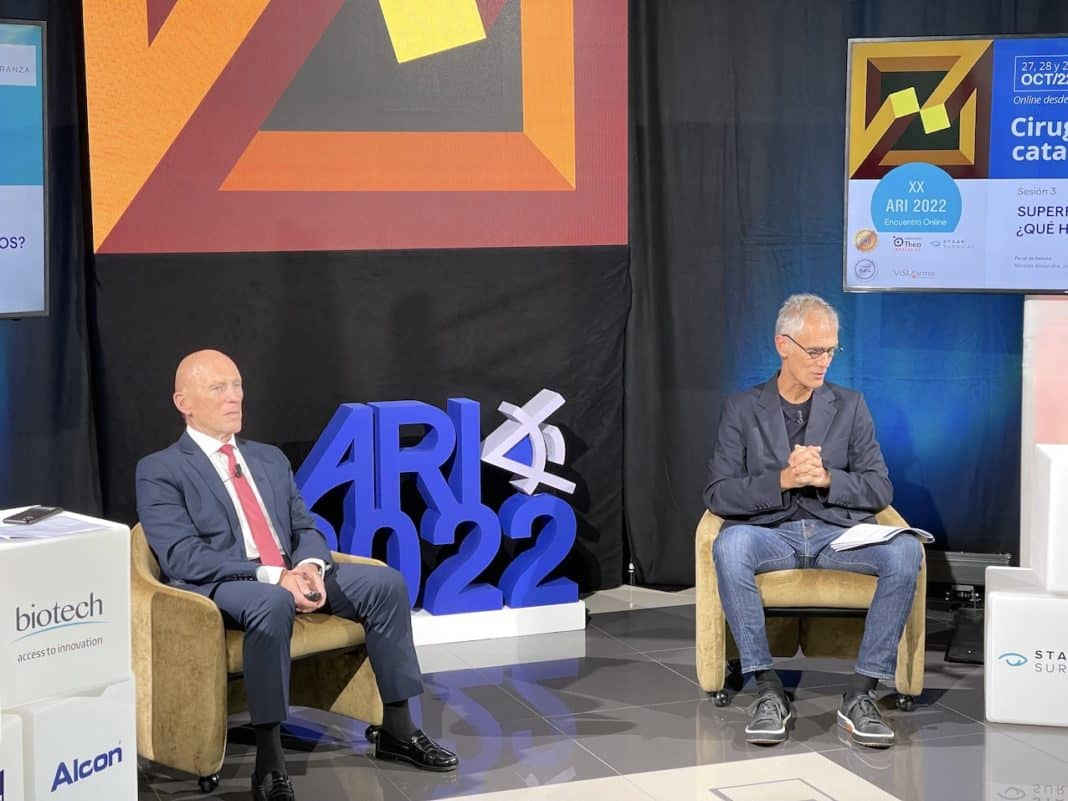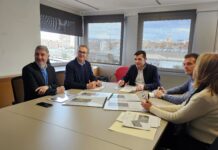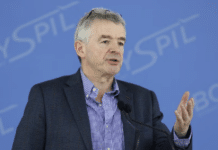The greatest experts in refractive, cataract and cornea surgery meet until October 29 at the 20th International Refractive Alicante Congress (ARI) directed by Dr. Jorge Alió
The International Refractive Alicante Congress (ARI) celebrates its 20th edition bringing together the best professionals in the world of ophthalmology in a forum of innovation and progress in the anterior segment. Directed by Dr. Jorge Alió, this event is the most important online ophthalmological meeting in Spain on refractive, cataract and cornea surgery.
Its sessions began yesterday with an ambitious program that will last until Saturday 29 and that includes new diagnostic technologies in optometry. Up-to-date topics on the treatment of dry eye and reconstruction of the ocular surface in complex cases will also be addressed, while answering questions about whether corneal transplantation can be avoided using refractive surgery alternatives. ‘ARI 2022’ includes an interesting and innovative program for optometrists.
This important international event brought together more than 2.000 attendees last year, who made more than 7.000 accesses to the medical education platform. This meeting breaks the traditional barriers of time and space, since the sessions are available to anyone interested in six months and can attend from anywhere in the world. The ‘ARI 2022’ congress is sponsored by the Miguel Hernández University (UMH) of Elche, Grupo Miranza and many sponsors from the ophthalmology industry.
From Vissum Ophthalmological Institute of Alicante (Grupo Miranza) the entire program of ‘ARI 2022’ is deployed, aimed at experts in professional practice and training, who seek to update their knowledge through presentations, scientific sessions and clinical cases. The program is divided into three days with five areas: new diagnostic technologies in optometry (area 1), cornea and ocular surface (area 2), video surgery (area 3), refractive surgery (area 4), and lens and lens surgery intraocular (area 5). In addition, a special session is included to discuss clinical cases.
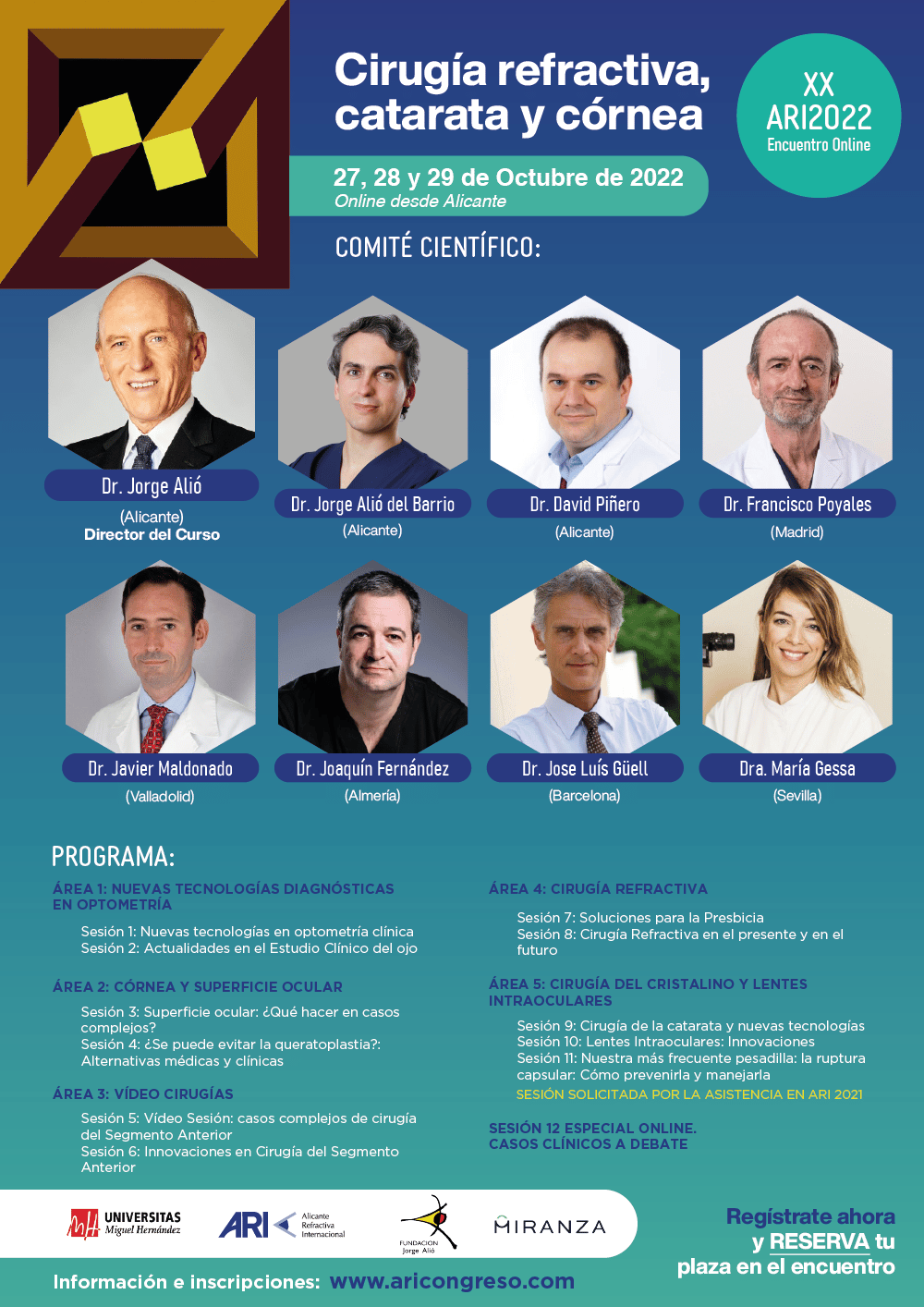
In yesterday’s session, Thursday, Dr. David Piñero from the University of Alicante (UA) and Prof. Jorge Alió from the UMH in Elche presented news such as: new types of technologies for the clinical study of the eye, lazy eye treatments, new contact lenses for the correction of myopia and corneal defects with vision loss (low vision contact lenses), new diagnostic platforms and digital vision tests for use in mobile phones. Likewise, they showed techniques to help patients with low vision, which allow them to be rehabilitated so that they can recover their reading and computer vision abilities.
For its part, today, October 28, complex cases will be carried out in anterior segment surgery, which include techniques for the treatment of ocular hypothermia and chronic ocular hypotonia to prevent atrophy of the eyeball. The treatment of complex cases of corneal diseases that lead to the loss of transparency and the corneal cell will also be discussed.
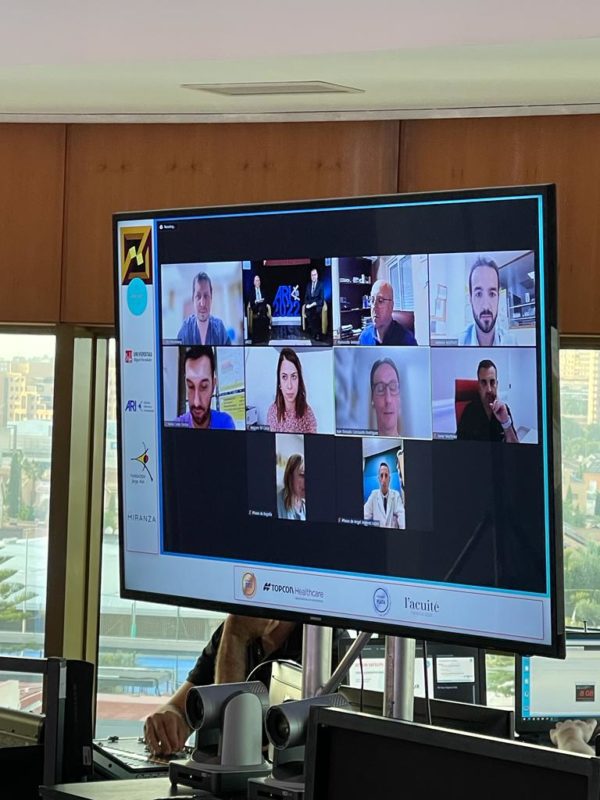
In addition, innovations in anterior segment surgery will be presented, such as: capsular bag transplant, micro valvular glaucoma surgery, and surgical correction of presbyopia using laser techniques and intraocular lenses. There will also be space to show the innovative use of eye drops for the control of moderate incipient presbyopia. Undoubtedly, there will be a special interest in the sessions dedicated to refractive surgery in special cases and new lasers.
Finally, the sessions on Saturday 29 will be covered by lens and cataract surgery, as well as the use of innovative intraocular lenses. Likewise, it will be discussed: lens laser surgery, new lasers for the use of cataract surgery, intraocular lenses that allow the correction of refractive errors of any type, and how to avoid complications of cataract surgery and refractive surgery.
This visual health appointment is a unique opportunity for ophthalmologists and optometrists from all over the world to discover the latest in the areas of vision sciences, as well as to keep up to date with ophthalmological news, both clinical and surgical.
To this end, a large panel of specialists has been created to make up the scientific committee, headed by Dr. Alió, and completed by doctors Jorge Alió del Barrio, David Piñero, Francisco Poyales, Javier Maldonado, Joaquín Fernández, José Luis Güell and María Gessa.

